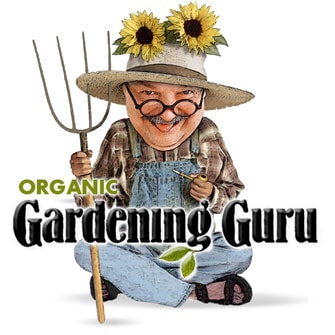
Knowledge is the key to successful organic gardening. Planet Natural has compiled much of the information you’ll need – from the basics of getting started to finding organic solutions to specific problems – here.
The Dirt on Growing Organically
Organic gardening, once seen as something practiced only by health nuts and hippies, is no longer a fad. Everyone wants the food we serve to our families as well as our environment to be safe and healthy. This desire for safety – wanting to do no harm to our families and the world around us — is the central reason people grow organically. The more we learn about chemical herbicides and pesticides, the more we see the effects of synthetic fertilizers and genetically modified crops, the more we realize that we must protect ourselves from them. Growing organically is a way of taking control, an attempt to make the foods you serve full of the good things your family needs, and free of the things they don’t. It’s a way of making the places where your children and pets play as safe as they can be. It’s a sign of respect to both your fellow humans and the environment as a whole.
It’s argued that organic gardens are impractical, expensive, and somewhat strange. Nothing could be further from the truth. It’s the way our great grandparents gardened, the way food was raised for thousands of years before the invention, widespread use, and deceptive advertising of chemical pesticides and synthetic fertilizers. True, it may cost a bit more as you wean your lawns and gardens from their harmful chemical addictions. But in the long run, as you upgrade your soil quality, apply compost you’ve made yourself, and utilize practical, sustainable gardening practices, your costs will go down. Going organic is not a compromise. Done right, it yields healthy, more vigorous growth and more bountiful harvests compared to commercially-centered growing. And the peace of mind you’ll gain as you remove known carcinogens, endocrine disrupters, petroleum byproducts, and mysterious and often dangerous inert ingredients from your outdoor environment? Priceless.
For me, deciding to go organic was a no-brainer. Conventional gardening revolves around products that kill everything they touch, knocking Mother Nature off-balance and doing harm to the birds and plants that live around us. Then we add a bunch of chemicals to our soil, artificially boosting the growing potential even as we sap it of its ability to regulate moisture and sustain the beneficial insects, worms, and complimentary microbes that bring it to life. It was easy to see that this was not a sustainable system and by continuing to garden this way, I was probably doing more harm – much more harm—than good.
I became interested in growing organically 20-some years ago when I moved to Bozeman, Montana from New Hampshire, where I grew up. While going to grad schools, to make ends meet, I waited on tables at night. During the day, I took a job caring for different types of beneficial insects for a guy who was selling them to wise gardeners as a natural means of pest control. The work was fascinating and gave me a chance to learn just how effective beneficial insects could be. I was bitten by the beneficial bug “bug.” Before I knew it, I was raising beneficial insects myself and using them in my backyard garden patch. My first gardening attempts were hit and miss. The soil was hard-packed clay and I nearly broke my arm trying to break it up with a fork shovel. Then, after getting some valuable practical advice from books and veteran gardeners, I started making compost and adding organic matter to my soil, building it like crazy with all kinds of natural stuff (see Building Healthy Soil). My wife wasn’t pleased when I threw several hundred pounds of dead worms (they had cooked in transit and couldn’t be sold) into the garden, but, boy, oh boy, did my garden grow. Eventually, I had bountiful harvests of lettuce, squash, tomatoes and cucumbers – even herbs—that were the envy of my friends and neighbors. I’ve been hooked ever since.
The guy down the block who pours chemical fertilizers on his garden, sprays pesticides with abandon, and applies weed-and-feed, not to mention copious amounts of water, to his garden may get good, but expensive results as well. But he’ll never have the satisfaction of knowing that the vegetables he serves his family are untainted with harmful residues, that the yard where his children play and his pets romp is free from compounds that might hurt them, that his soil is improving naturally and not existing on a life-support diet of synthetics. That’s what brings the joy to gardening. Let’s get started!
